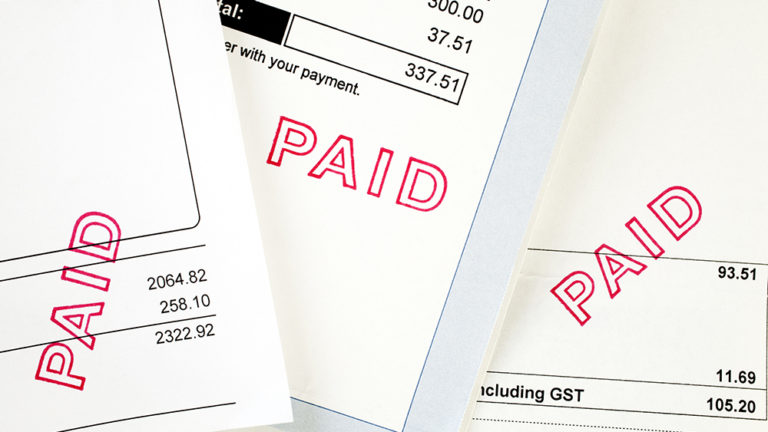11 ways to ensure your invoices are always paid on time

Credit insurance help mitigate risk against unpaid or late invoices due to a company insolvency or other factors causing hold-ups with a company’s cash flow.
Government figures from 2022 show that there were 22,109 company insolvencies registered that year, the highest level since 2009 and 57% up on 2021. The highest number of new company insolvencies came from the construction industry with 4,143 insolvencies, which accounts for 19% of the total for 2022. Wholesale and retail trade, along with the vehicle repair industry, came next with 3,263 insolvencies. The accommodation and food services industry was third with 2,704 insolvencies. These figures show that no matter how clear your invoice terms are, if a company becomes insolvent before paying their bills, you could be in trouble.
Businesses are facing uncertain times so it’s more important than ever to make sure you have the right invoice payment terms. This will ensure you’re doing the best you can to get your invoices paid on time.
According to research by Chaser in 2022, 87% of businesses reported that their invoices were paid late. The same report highlighted that the marketing and the construction industry reported the most problems, with invoices on average paid at least 15 days late. Late payment of invoices is also said to cost SMEs £684m a year, and the average business has £31,055 in invoices waiting to be paid.
Late payments are not only bad for your business cash flow, but can also impact your wellbeing. A few late payments can cause many a sleepless night and create uncertainty for the future. But how can you make sure your bills get paid?
Here are 11 top tips to ensure your invoices are always paid on time:
1. Maintain great client relationships
This one seems obvious, but if you’ve got a great relationship with your clients, they aren’t going to want to damage it with a late payment. Taking the time to get to know them and understand their business can work to your advantage – for example, you can tweak your terms or change your invoicing days to fit around their payment run, increasing your chance of prompt payment.
2. Have a clear contract
Be specific when you set out the work, timescales and your payment expectations before the work begins. Make sure to include information about any additional work that might be needed, and how that will be reflected in the invoice. That way there will be no nasty surprises at the end!
3. Be punctual – send your invoices as soon as they’re ready
The longer you delay in sending your invoices, the longer you’re delaying your payday! Prepare and send your invoices promptly to protect your cash flow, and keep the work at the top of your client’s mind.
4. Send the invoice to the right person
Another obvious one, but the person you’re dealing with isn’t always the one who pays the bills. Make sure to get the name of the accounts/finance department to avoid your invoice getting lost in the wrong inbox.
5. Have prompt payment terms
The shorter your payment terms, the sooner you’ll be paid. This doesn’t apply to all invoices – if you’re billing a large sum of money your client might expect, and require, a longer payment term.
6. Make the payment process easy
Questions delay payments, so make sure your payment process is fool proof by including all the information your client needs, and that this information is correct.
7. Offer a discount for early payments
An incentive is a powerful tool in persuading your clients to pay quickly. It doesn’t have to be drastic, offering a discount of 2-5% if the invoice is paid within five days could be a good place to start.
8. Send an email reminder
Quick and easy to set up, sending a friendly email reminder the week before the invoice is due can be a useful prompt to get them paid on time.
9. Chase overdue payments
Overdue invoices should be followed up immediately. No-one likes to make these calls, but they are essential if you want to get paid. To help make these calls easier follow these three steps:
- Call in the morning – the earlier in the day the better
- Call often – don’t be a nuisance calling every five minutes, but make contact frequently until the invoice is settled.
- Always remain professional, but be polite and firm – however frustrating the situation, it’s always better to be pleasant to protect your business reputation.
10. Charge a late payment fee
Consider adding a charge for late payment to deter your clients from missing the payment date.
11. Charge interest on unpaid invoices
Adding an interest charge on late payments can be another effective deterrent, and also compensate you for any loss of income as a result.
The best way to protect your income from late payments is with credit insurance, read our find out more about credit insurance, or call our expert team today on 01223 324233.

